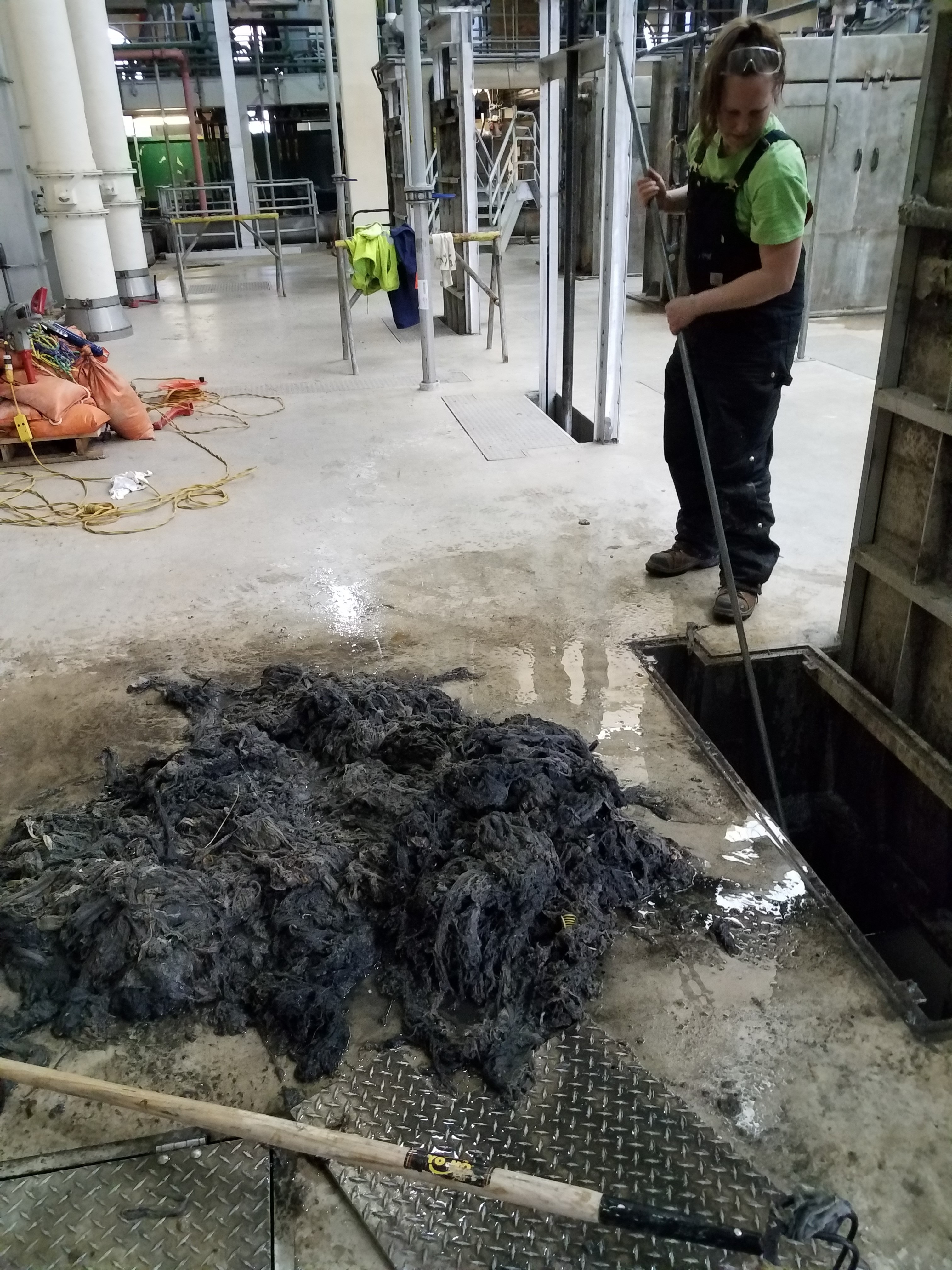If the label says "flushable," then wet wipes should be able to go down the toilet, right?
Unfortunately, no. Flushable wipes aren't as flushable as advertised.
But people are flushing wipes down toilets – and this is causing dangerous problems.
Toilet paper is designed to disintegrate in our pipes and sewage systems, but flushable wipes are not. They’re typically made with synthetic materials, plastics or polyester, that won't break down. So even if they flush down your toilet, they end up clogging our sewers. This poses hazardous risks to sewage professionals that must break these clogs up as well as considerable costs. Some cities have spent millions of dollars a year to address damages and clear the pipes.
As wipes meet cooking fat in the sewage system, it builds up into a monstrous obstacle, a “fatberg.”
A fatberg is a huge mass of solid waste largely consisting of cooking fats, disposable wipes, tampons, and other sanitary items that get flushed down the commode. They’re unhygienic, expensive to fix, and incredibly gross (if you’re really curious, you can check out Museum of London’s Fatberg Autopsy). Clogs and fatbergs make jobs that are already hazardous and very difficult even more so.
Thames Water utility in London dealt with a single fatberg weighing as much as 11 double-decker buses. Depending on the volume, fatbergs can take days or even weeks for teams of workers to clear out and send to landfills. In 2018, New York City’s Department of Environmental Protection had to clear over 2,000 fatbergs and reports that “flushable” wipes make up 90 percent of the clogs.

So, why are wipes advertised as “flushable”?
You can attempt to flush many things down a toilet (if you have a child, perhaps you've seen the random stuff someone may put down the drain...) but that doesn’t mean they’ll effectively move through our sewage system. Companies can currently label wipes as “flushable” simply because they aren’t restricted from doing so.
Companies aren't required to prove flushability before asserting this claim and it seems most would fail any such test. A study out of Canada tested 101 wipes on the market for flushability and not a single one passed. This marketing technique is misleading and we need provisions to keep companies from freely using it and sparking customer confusion.
While there have been policy attempts to curtail deceptive “flushable” labels (California is debating a bill that would require products to be clearly labeled) these moves have been met by significant resistance from the industry.
Solutions to Keep the Pipes Clear
One of the last things we need during a serious global pandemic are clogged sewers overflowing into our streets. Utility departments are urging and pleading for us to stop flushing wipes and to only flush our bodily business and toilet paper. Wipes are also not recyclable, so they need to go to the trash bin.
To address this issue beyond our homes, we can urge our elected officials to hold companies making these wipes accountable for the costs to our municipal sewage systems. We can also contact companies by tagging them on social media and ask them to stop using “flushable” claims.
Please keep the pipes clear by not flushing wipes, wash your hands for 20 seconds, and take care of your health and your families.





